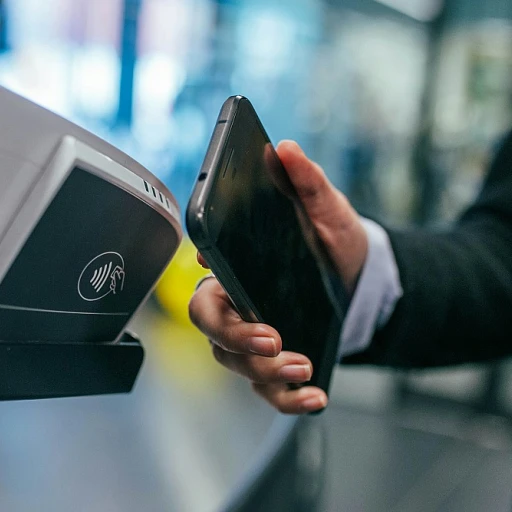Understanding the Startup Ecosystem in the Middle East
The Thriving Landscape of Startups in the Region
The Middle East is rapidly emerging as a hotspot for innovative startups, offering a fertile environment for entrepreneurship and technological advancement. With the dynamic cities of Dubai, Tel Aviv, and Abu Dhabi at the forefront, the region has become a meeting point for ambitious innovators and investors alike. The strategic location of countries like Saudi Arabia and the United Arab Emirates is transforming them into pivotal hubs, facilitating connections between continents and enhancing opportunities for startups aiming to enter both local and global markets. Investors are increasingly attracted to this region, recognizing its potential to host groundbreaking ventures, ranging from fintech and real estate platforms to services leveraging artificial intelligence. A surge of venture capital and creative financial strategies is empowering startups to thrive in environments that somewhat differ from traditional Western ecosystems. The influx of funding into promising companies is reshaping conventional business models and fostering technological achievements that are now gaining recognition on the global stage. For further insights, delve into the fintech boom that is fueling the surge, highlighting the role of financial services in supporting the Middle East's innovative drive. This nurturing environment is not only about capital; it also embraces services that offer startups crucial support and growth opportunities. By harnessing local talent and external expertise, companies across the region are carving out niches in competitive sectors, exemplifying the strategic prowess of Middle Eastern startups in navigating unique challenges and seizing new opportunities.Strategic Challenges Unique to Middle Eastern Startups
Navigating the Complex Landscape
Startups in the Middle Eastern region encounter a unique set of strategic hurdles. Despite the growing interest from investors and increasing availability of venture capital, the region's startup ecosystem faces undeniable challenges. Among these obstacles, cultural and regulatory differences stand out as significant barriers. Additionally, geopolitical factors often cloud the predictability required for smooth business operations. Notably, startups looking to thrive must carve strategies that are adaptable to these multifaceted issues.Diverse Regulations and Cultural Nuances
The Middle Eastern countries have diverse regulatory environments that can sometimes be a maze for emerging companies. For instance, what applies in the United Arab Emirates might differ drastically in Saudi Arabia. Startups must navigate these differences with an understanding that aligns with local customs as much as with legal requirements. This adept navigation is essential for securing the necessary funding and investor confidence.Geopolitical and Economic Dynamics
Another challenge arises from the geopolitical tensions that occasionally flare up in this region, affecting both the economic stability and the attractiveness of Middle Eastern startups on the global stage. Startups need to strategize on how to maintain operations amid such uncertainties. Economic brakes or accelerators can abruptly alter business prospects, requiring startups to remain agile.Balancing Tradition with Technology
Many startups are redefining traditional sectors, such as real estate and financial services, using cutting-edge technologies like artificial intelligence. However, they must also balance innovation with cultural sensitivities. Startups in cities like Dubai and Tel Aviv are becoming increasingly adept at implementing innovative business models tailored to regional preferences. To gain competitive advantages, startups are focused on areas such as ecommerce platforms and fintech solutions, which respect regional traditions while injecting modern efficiencies. For further insights into how the Dow Jones is influencing emerging financial services landscapes, consider exploring how the Dow Jones is shaping financial futures. Strategic challenges are inherent but not insurmountable; with the right focus and flexibility, startups in the Middle East continue to carve their path forward, catching the eye of global investors and expanding their reach beyond the region.Innovative Business Models and Strategies
Revolutionizing Business Models
The Middle East has become a fertile ground for startups pioneering revolutionary business models, leveraging both traditional sectors and cutting-edge technology. The fusion of innovation and tradition is particularly evident in the realm of financial services, where companies in Saudi Arabia and the United Arab Emirates have harnessed platforms to offer more streamlined and customer-centric services.
For instance, the region's top startups are transforming real estate markets with digital platforms that simplify processes traditionally mired in complexity. Meanwhile, in sectors like artificial intelligence, startups in Tel Aviv are leading the charge with AI-based solutions that have garnered significant local and global attention.
Strategic Partnerships and Funding Innovations
To thrive in the Middle Eastern startup ecosystem, securing adequate funding remains crucial. Startups are increasingly exploring novel fundraising strategies, from capital injections from both regional investors and global venture capitalists to crowdfunding initiatives that democratize investment opportunities.
Saudi Arabia and the UAE, among others in the region, are home to funded startups that have strategically engaged with international partners to bolster their market presence. These partnerships not only provide financial backing but also offer valuable market insights and operational support.
Regional Platforms Gaining Momentum
The growing number of platform-based services from startups founded in cities like Dubai and Abu Dhabi highlight the trend towards providing integrated solutions across various sectors. From e-commerce platforms to service-oriented applications, these initiatives are attracting venture capital from diverse sources, including North Africa and the United States.
Incorporating advanced technology and a keen understanding of regional nuances, Middle Eastern companies are positioning themselves as competitive players on the global stage. Their ability to adapt and innovate amid strategic challenges underscores their potential to become major industry leaders, ushering in a promising era for the startup ecosystem in the region.
The Role of Technology and Innovation
Technological Innovations Shaping the Future
The Middle East has witnessed remarkable advancements in technology, with startups in the region harnessing cutting-edge innovations to stay competitive. From Dubai to Tel Aviv, these companies are leveraging emerging technologies such as artificial intelligence, blockchain, and the Internet of Things to disrupt traditional industries. Artificial intelligence has become a cornerstone for many startups in the Middle East. These businesses have recognized the potential AI holds in transforming various sectors, including financial services, healthcare, and real estate. By automating processes and offering smarter solutions, AI-based startups are setting new benchmarks for efficiency and effectiveness in the region. Blockchain technology is another game-changer for Middle Eastern startups. Companies are increasingly integrating blockchain to ensure secure and transparent transactions, particularly in industries like financial services and supply chain management. By doing so, they are not just enhancing operational efficiency but also building trust among stakeholders. In terms of infrastructure, the Middle East offers a robust platform for technology-driven ventures to thrive. Cities like Dubai, Abu Dhabi, and Riyadh serve as strategic hubs for innovation, connecting startups to a global network of investors and customers. This connectivity is crucial for the growth of the startup ecosystem, enabling companies to tap into regional and international markets effectively. Moreover, the availability of funding is pivotal in driving technological innovation in the Middle East. Various funding rounds and investments by venture capitalists have empowered startups to experiment with new ideas and scale their operations. The presence of top startups that have received significant funding indicates a vibrant and conducive environment for technological advancements. Lastly, the region has seen a rise in tech-focused incubators and accelerators, particularly in the United Arab Emirates and Saudi Arabia. These platforms provide the necessary support for startups, offering mentorship, networking opportunities, and access to capital. By fostering a culture of innovation, these entities are crucial in propelling the Middle East towards becoming a global technology leader.Case Studies of Successful Startups
Triumphs of Middle Eastern Startups: Real-world Examples
The Middle East has become a vibrant arena for innovation, with startups making impressive strides across multiple sectors. These emerging companies navigate unique challenges but have produced noteworthy success stories that demonstrate their potential on the global stage. Dubai-based companies have shown remarkable resilience and innovation, leveraging the region's strategic location and financial clout. For instance, a top startup in the financial services sector developed a platform that integrates cutting-edge artificial intelligence and streamlined user experience to cater to the specific needs of Middle Eastern consumers. This service has attracted significant investor interest, securing substantial funding rounds, which have fueled its rapid expansion across the United Arab Emirates. In Saudi Arabia, startups are innovating in key sectors such as real estate and technology. A prominent company in Riyadh has focused on smart city solutions, combining technology with urban development to tackle local challenges. By securing capital from venture capital firms, this company is not only transforming local landscapes but also setting benchmarks for technology integration in urban settings. Furthermore, the growth of funding mechanisms in Tel Aviv, Israel, has significantly influenced the ecosystem in North Africa and beyond. The region's ability to attract global capital highlights the competence and adaptability of Middle Eastern startups. United by their common goal of addressing local challenges with global best practices, these startups demonstrate the strength and potential of the regional market. Abu Dhabi has also become a hub for innovation, with enterprises in the artificial intelligence space capturing the attention of international investors. The continuous support from both private and public sectors has allowed these startups to explore new frontiers, fostering a culture of creativity and competitiveness. The impressive achievements of startups within this region provide insights into their strategic approaches. The alignment of technology with local demands, combined with robust funding, has solidified their positioning as key players in not just the Middle East but also on a global level. This momentum showcases the vital role these startups play in reshaping industries and inspiring the next wave of entrepreneurs across Saudi Arabia, the UAE, and beyond.Future Outlook for Middle Eastern Startups
Anticipating the Road Ahead
As the Middle Eastern startup ecosystem evolves, several emerging trends and opportunities are set to shape the region's future. This progress is driven by the unyielding growth of technology and the increasing accessibility of resources within the United Arab Emirates, Saudi Arabia, and other key areas.- Acceleration of Technology Adoption: Innovation in technology, particularly in realms such as artificial intelligence and fintech, is expected to continue playing a crucial role in the development of startups. The demand for advanced technology solutions is substantial, especially in sectors like real estate and financial services.
- Increased Investment Inflows: With ongoing strategic challenges being addressed, the Middle East is witnessing heightened interest from global investors. The influx of venture capital from regions such as the United States and north Africa aids local startups not only financially but also strategically.
- Expanding Market Reach: Startups from hubs like Dubai, Abu Dhabi, and Tel Aviv are expanding beyond regional borders, tapping into global markets. This international presence is vital for sustained growth and establishing a competitive edge on the global platform.
- Emerging Industries and Business Models: New business models are surfacing, driven by changing consumer demands and digital transformation. The "platform" approach, adopted by notable companies in the UAE and Saudi Arabia, fosters innovative service offerings that are scalable and market-responsive.
- Policy and Regulatory Support: Government initiatives in countries such as Saudi Arabia continue to offer a conducive environment for startups. These policies are instrumental in nurturing entrepreneurship and providing easier access to funding.













